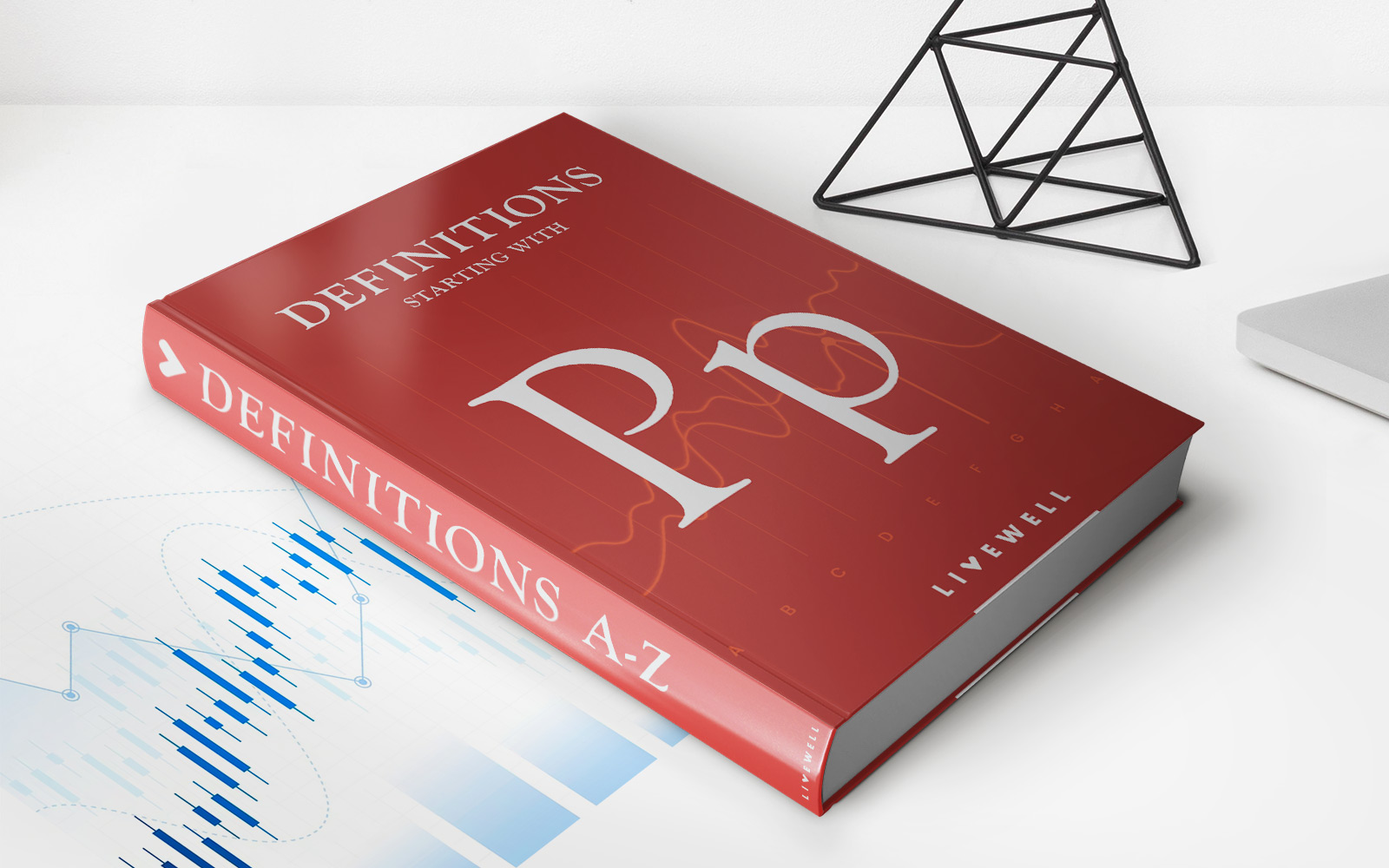

Finance
How Does CD Grace Period Work?
Modified: February 21, 2024
Learn how the CD grace period works and its impact on your finances. Understand the benefits and implications of this feature.
(Many of the links in this article redirect to a specific reviewed product. Your purchase of these products through affiliate links helps to generate commission for LiveWell, at no extra cost. Learn more)
Table of Contents
What is a CD Grace Period?
A certificate of deposit (CD) is a popular financial instrument that allows individuals to earn higher interest rates on their savings compared to regular savings accounts. When considering opening a CD account, it's crucial to understand the concept of a CD grace period. This period is a significant feature of CD accounts that can impact the account holder's financial decisions and overall experience.
The CD grace period serves as a buffer of time between the maturity date of the CD and the date when the financial institution can automatically renew the CD for another term. During this period, account holders have the opportunity to make changes to their CD, such as withdrawing funds without incurring early withdrawal penalties or renewing the CD for a different term or interest rate.
Understanding the intricacies of a CD grace period is essential for individuals who want to maximize the benefits of their CD accounts while avoiding potential pitfalls. In the following sections, we will delve into the workings of a CD grace period, its benefits, drawbacks, and how it influences the overall CD investment landscape.
What is a CD Grace Period?
A Certificate of Deposit (CD) grace period is a specified length of time after a CD reaches maturity during which the account holder can make changes to the account without incurring penalties. When a CD matures, the account holder has several options, including withdrawing the funds, renewing the CD for another term, or making additional deposits or withdrawals. The grace period provides account holders with the flexibility to decide on the next steps for their investment without feeling rushed or pressured to make immediate decisions.
Typically, CD grace periods range from a few days to a few weeks, depending on the financial institution and the terms of the CD. During this period, the funds in the CD continue to earn interest at the agreed-upon rate. This feature distinguishes the grace period from the penalty-free withdrawal period, during which account holders can withdraw funds from the CD without incurring early withdrawal penalties.
It’s important for CD investors to be aware of the existence and duration of the grace period associated with their CD accounts. This knowledge empowers them to make informed decisions based on their financial goals, market conditions, and interest rate trends. Understanding the implications of the grace period is crucial for maximizing the benefits of a CD investment and avoiding unintended consequences.
As we explore the intricacies of a CD grace period, we will uncover how this feature influences the dynamics of CD investments and the considerations that account holders should keep in mind when navigating the maturity of their CDs.
How Does a CD Grace Period Work?
When a CD reaches its maturity date, the grace period comes into effect, providing account holders with a window of time to decide on the next course of action. During this period, the account holder has several options:
- Renewal: The account holder can choose to renew the CD for another term, often with the option to select a different term length or interest rate. If the account holder takes no action during the grace period, some financial institutions automatically renew the CD for the same term length at the prevailing interest rate.
- Withdrawal: Account holders have the opportunity to withdraw some or all of the funds from the CD without incurring early withdrawal penalties during the grace period. This flexibility allows investors to access their funds if needed or explore other investment opportunities.
- Additional Deposits: Some financial institutions permit account holders to make additional deposits into the CD during the grace period, enabling them to increase their investment without opening a new CD account.
It’s important to note that the specific options available during the grace period can vary based on the terms and conditions set forth by the financial institution offering the CD. Account holders should review the terms of their CD agreements to fully understand the available choices and any associated restrictions or requirements.
Furthermore, during the grace period, the CD continues to earn interest at the agreed-upon rate, providing account holders with continued growth potential for their funds. This interest accrual occurs whether the account holder decides to renew the CD, withdraw funds, or make additional deposits.
Understanding the workings of a CD grace period empowers account holders to make informed decisions that align with their financial objectives. The grace period serves as a valuable feature that enhances the flexibility and control account holders have over their CD investments, ultimately contributing to a more tailored and strategic approach to wealth management.
Benefits of a CD Grace Period
The CD grace period offers several advantages for account holders, contributing to the appeal and flexibility of CD investments:
- Flexibility: The grace period provides account holders with the flexibility to assess their financial circumstances and make well-informed decisions regarding the future of their CD investments. This flexibility is particularly valuable in uncertain economic environments or when account holders are exploring alternative investment opportunities.
- Opportunity for Adjustment: Account holders can use the grace period to adjust their CD investments based on changes in interest rates or personal financial goals. Whether it involves renewing the CD at a different interest rate, withdrawing funds, or making additional deposits, the grace period allows for strategic adjustments without incurring penalties.
- Decision-Making Timeframe: The grace period offers account holders a designated timeframe to carefully consider their options, reducing the pressure to make immediate decisions upon CD maturity. This extended decision-making window can lead to more deliberate and advantageous choices for the account holder.
- Interest Accrual: During the grace period, the CD continues to accrue interest at the established rate, enabling account holders to benefit from ongoing growth potential while evaluating their next steps. This continuous interest accumulation contributes to the overall value of the investment.
These benefits collectively enhance the appeal of CD investments and empower account holders to navigate their financial strategies with greater confidence and adaptability. By leveraging the grace period, investors can align their CD holdings with their evolving financial objectives and market conditions, optimizing the potential returns and overall effectiveness of their investment portfolios.
Drawbacks of a CD Grace Period
While the CD grace period offers valuable flexibility and benefits, there are also potential drawbacks that account holders should consider:
- Missed Opportunities: In some cases, account holders may inadvertently miss out on more favorable interest rates or investment opportunities during the grace period. If market conditions shift or interest rates rise, failing to take timely action within the grace period could result in the account holder renewing the CD at a less competitive rate.
- Decision Paralysis: The extended decision-making window provided by the grace period can lead to decision paralysis for some account holders. The abundance of options and the absence of immediate deadlines may cause individuals to delay making strategic decisions, potentially impacting the overall effectiveness of their investment strategy.
- Unintended Renewal: If an account holder fails to take action during the grace period, some financial institutions automatically renew the CD for the same term length at the prevailing interest rate. This automatic renewal may not align with the account holder’s current financial goals or market expectations.
- Opportunity Cost: While the CD continues to earn interest during the grace period, the opportunity cost of not reallocating the funds to potentially higher-yielding investments should be considered. Account holders need to assess whether the returns from the CD investment during the grace period outweigh the potential gains from alternative investment opportunities.
It’s essential for account holders to weigh these drawbacks against the benefits of the grace period and make informed decisions that align with their financial objectives and market outlook. By carefully evaluating the implications of the grace period, investors can mitigate potential drawbacks and leverage the flexibility of CD investments to their advantage.
Conclusion
The CD grace period is a pivotal component of CD investments, offering account holders a valuable window of flexibility and opportunity upon the maturity of their CDs. By providing the freedom to renew the CD, make withdrawals, or adjust the investment during a designated timeframe, the grace period enhances the control and adaptability of CD investments.
While the grace period presents numerous benefits, such as flexibility, adjustment opportunities, and a conducive decision-making timeframe, it also comes with potential drawbacks, including missed opportunities and decision paralysis. Account holders must carefully evaluate these aspects and consider their financial goals, market conditions, and investment alternatives when navigating the grace period.
Ultimately, the effectiveness of the CD grace period hinges on informed decision-making and strategic alignment with the account holder’s financial objectives. By leveraging the grace period to make deliberate and well-calculated choices, investors can optimize the potential returns and overall effectiveness of their CD investments, contributing to a more tailored and responsive wealth management approach.
As individuals explore the realm of CD investments, understanding the nuances of the grace period empowers them to navigate the maturity of their CDs with confidence and foresight. By leveraging the benefits of the grace period while mitigating its potential drawbacks, account holders can harness the full potential of CD investments to support their financial aspirations and long-term wealth management strategies.














